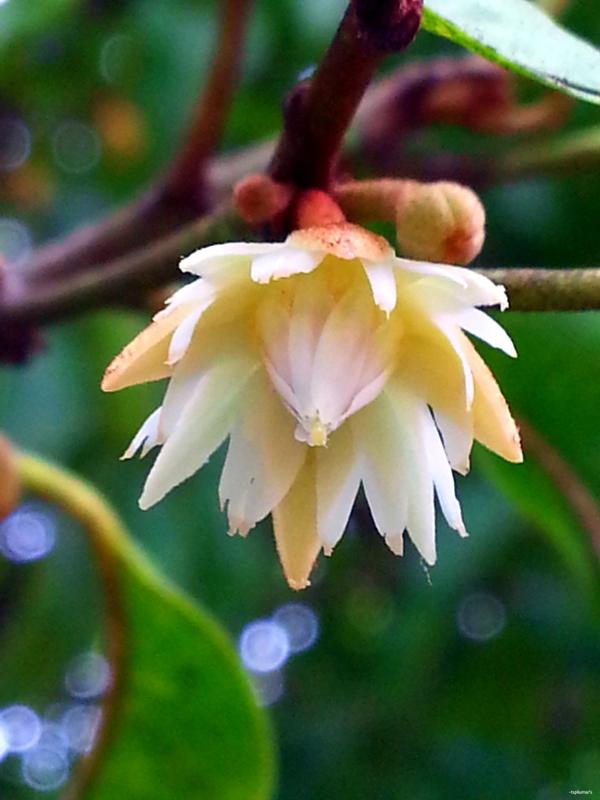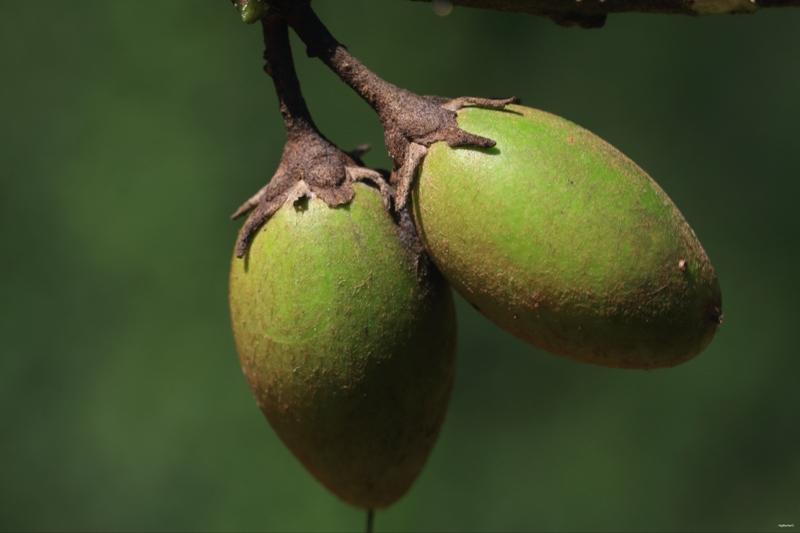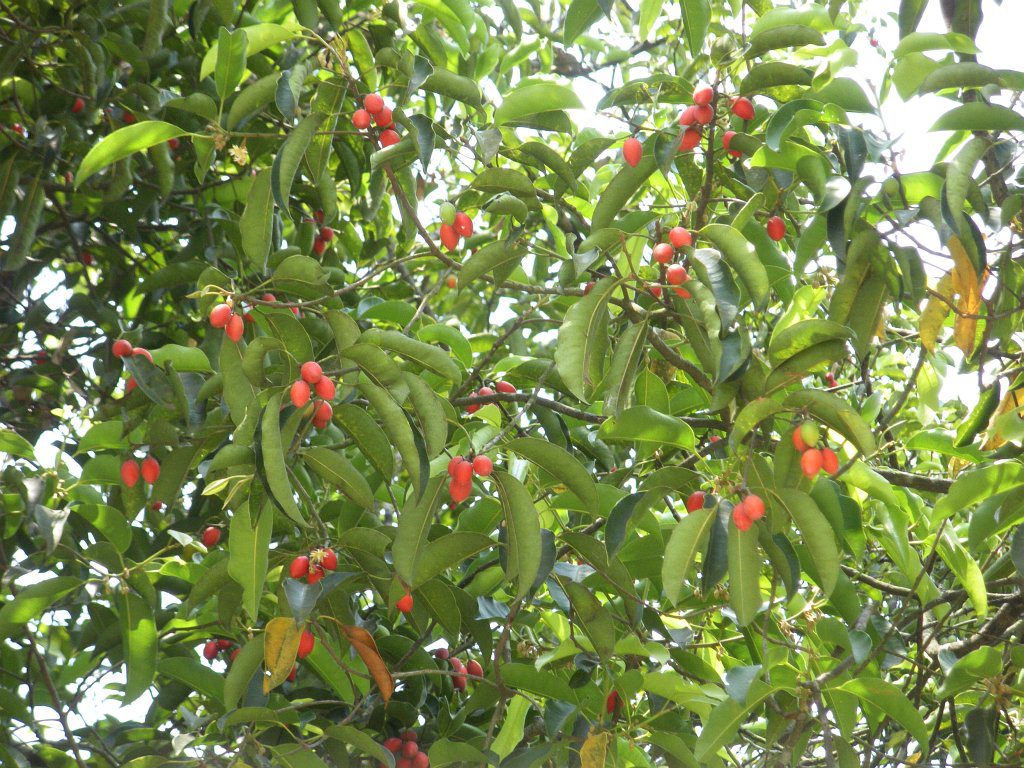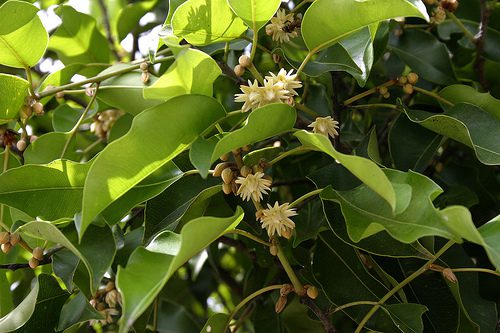Mimusops elengi
This is a tropical evergreen tree found mostly in south-eastern Asia and some parts of Northern Australia. It is known by different names, மகிழம் or வகுளம் in Tamil, Bullet Wood or Spanish Cherry in English. Mimusops elengi was quite popular in Tamil Nadu during the ancient times but are facing a decline nowadays.
Taxonomy
| Kingdom: | Plantae |
| Division: | Angiosperms |
| Sub-Division: | Eudicots |
| Class: | Asterids |
| Order: | Ericales |
| Family: | Sapotaceae |
| Genus: | Mimusops |
| Species: | M. elengi |
Identification
This is an evergreen tree that generally grows up to 16 meters in height rarely reaching 18 meters. The tree is called bullet wood because of its fruits that are bullet shaped. The leaves are dark-green, oval shaped with pointy ends. The buds originate as terminal buds in this tree.
The flowers are star shaped, white to sandal colored with strong fragrance. These flowers are known for their property of retaining their scent even after they dry! In India, the flowers are used to make garlands that decorate the women’s hair and also used to worship God.
The fruits are bullet shaped and are green while unripe. They get yellow as get ripe and become dark orange when fully ripe. The seeds are brown or dark brown.



Chemical constituents
The leaves, twigs, bark, seeds flowers and fruits contain several useful chemicals that are used in various Ayurveda treatment methods. The Leaves contain sterols, reducing sugars and tannins, Roots: a steroidal saponin. The Stem and Bark contain spinasterol and taraxerol, flowers, D-mannitol, beta-sitosterol, and beta-sitosterol- D-glycoside. The Seeds contain pentacyclic triterpene acids, mimusopic and mimusopsic acids.
Medicinal Uses
Mimusops elengi is useful in a variety of ways. Important medicinal uses are,
- Tender twigs can be used to brush teeth.
- The bark powder is used along with catechu and pomegranate bark powder in an ayurvedic tooth powder called “Vajradanti”.
- The pulp of the fruit is used in curing chronic dysentery.
- The leaves are used as an antidote to snake-bite.
- Tonic obtained from the bark is used as a tonic, astringent, and to reduce fever.
- Flowers are dried and used as a brain tonic.
- The seeds are used as purgatives.
- Dried powdered flowers are sniffed through nostrils could treat headaches.


How much does root goes ? Becaz i need to plant my house which has shorter area